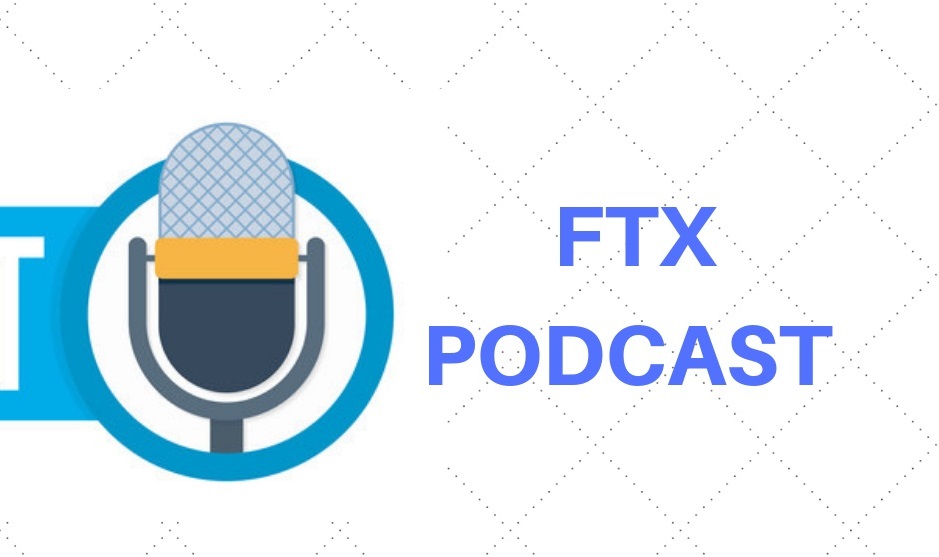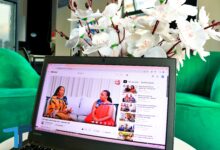Feminist Tech Exchange (FTX) : The Magic of Storytelling Through Podcasting

The Feminist Tech Exchange safety reboot modules podcasts.
The month is August, the year is 2018, I am in Nepal for the Feminist Tech Exchange (FTX) convening. My first time in Asia and I must say it was an amazing experience. The meeting was a four-day exchange with feminist trainers and facilitators working on digital security and engaged in building stronger and more resilient movements in a digital age.
After the convening the Association for Progressive Communication (APC) who were the conveners of this meeting floated a grant. The participants were given an opportunity to apply for this grant. And come up with creative ideas around feminist digital security. I applied for the grant and my idea was to localize the FTX safety reboot modules through podcasts! Yes podcasts. Why podcasts one may ask? Well before I answer that let me give a brief introduction about the FTX training modules, their purpose and who they are meant for.
FTX safety Reboot is a training curriculum made up of several modules for trainers who work with women’s rights and sexual rights activists to use the internet safely, creatively and strategically. It is a feminist contribution to the global response to digital security capacity building and enables trainers to work with communities to engage technology with pleasure, creativity and curiosity. It is for trainers working with women’s rights and sexual rights activists on digital safety. Trainers should be familiar with the obstacles and challenges faced where misogyny, censorship and surveillance are restricting activists’ freedom of expression and ability to share information, create alternative economies, build communities of solidarity and express desires. Safety Reboot explores how the online spaces are occupied, how women are represented, how discourses and norms that contribute to discrimination and violence can be countered.
Back to the question of why I choose podcasting, to localize the modules. Well, first and foremost podcasting is just one of the most engaging forms of content delivery. Podcasts is basically storytelling in the digital age, and who doesn’t love a good story? I know I do. It’s so important in this technology integrated era that we are living in today, to take advantage of the digital platforms to tell stories, our stories because if we don’t tell our stories who will?. Storytelling is about transporting your listeners to a world they had no idea existed, and it’s your responsibility to make sure you don’t lose them along the way. Actually, storytelling has been in existed for centuries. From the Bible being the greatest story ever written to Shakespeare’s, Romeo and Juliet. (Thank me later for jogging your mind). And what better way than podcasts to localize the FTX safety reboot modules. I was very excited when my idea went through and it was now time to implement the idea. Have you heard of the saying easier said than done? Or in this case, easier proposed than implemented? That was the space I was in. Actually, I was the poster child for that statement, with this idea. But they say until you are out of your comfort zone, you will never know what you are capable of.
I started with the process of familiarizing myself with the process of creating a podcast, by listening to different podcasts and different tutorials on how to go about it. I then booked my first session at Portable Voices podcast studios. Let me just say I had assumed since am in the broadcasting industry it was going to be a walk in the park. I mean I work for a media house and we are in the business of broadcasting. So why would the production of podcast be rocket science to me? Let’s just say I was a bit wrong, underline the word a bit. I must admit my first session was challenging. You see with podcasts you assume just because it’s audio it’s just a matter of going in the studio and recording and getting out. On the contrary, a lot is involved. Your listeners can pick up on your intonation, the emotion in your voice hence apart from you have to be prepared both mentally and psychologically. For someone who has not done podcasting, it’s good to know that it’s not easy, however, it gets better with every episode. Let me replace the word better with interesting.
My first module was on online gender-based violence, a topic that is very close to my heart. This module is about guiding participants through the issues relating to online gender-based violence – its root causes, how violence plays out on the internet, the continuum of violence that women, women-identified and queer identities experience online and offline, and its impact. The magic of FTX safety reboot modules is that a lot of group activities is incorporated in all their modules. This makes them more exciting and intriguing to the participants. And that’s the thing about incorporating activities in training it keeps the participants more alert, and it also arouses their curiosity. After the first episode of the podcast was edited and ready to be aired I uploaded it to my Sound Cloud account and I also uploaded it on YouTube. The reason I choose two different platforms is to cater for the preferences of different audiences. The feedback I got after the first one went on air was very positive. It just fueled my desire and passion to keep going (not that I was going to stop anyway). That’s the thing about positive comments they keep you going and make you want to do better.
My second module was on creating space spaces online. This module is all about making the online space safe for the most vulnerable groups, facilitating learning and building capacity on creating safe online spaces, specifically for at-risk groups and individuals like women and sexual rights activists. I must say this was way much easier than the first one. Let’s say I was getting the hang of it!
The third module was about “mobile safety”. In this module, we work with participants to share strategies and tactics for using their mobile phones more safely in situations and contexts where they live in. How can we keep our phones safe knowing that our phones nowadays are basically our mini laptops.
Last but not least was self- care. Self-care is not a module. However, the reason why included it was because it was really discussed during the FTX convening in Nepal. And though I it was such an important issue that needed to be discussed.
And just in a blink of an eye, I was done, and I had to wrap up the project. The podcasts offered a comprehensive picture of different views and opinions on each module. And that’s the magic of podcasting. I must say it was a very interesting journey and truly an eye-opener.
All the podcasts are available on SoundCloud and YouTube. Kindly listen to them, share and give me your feedback.
List to the podcasts on SoundCloud below:
YouTube
https://www.youtube.com/channel/UCcnfxHOA5jAAUFDuU3xHatQ
This project would not have been possible without the generous funding of the Association for Progressive Communication (APC).
Follow us on Telegram, Twitter, Facebook or subscribe to our weekly newsletter to ensure you don’t miss out on any future updates.




